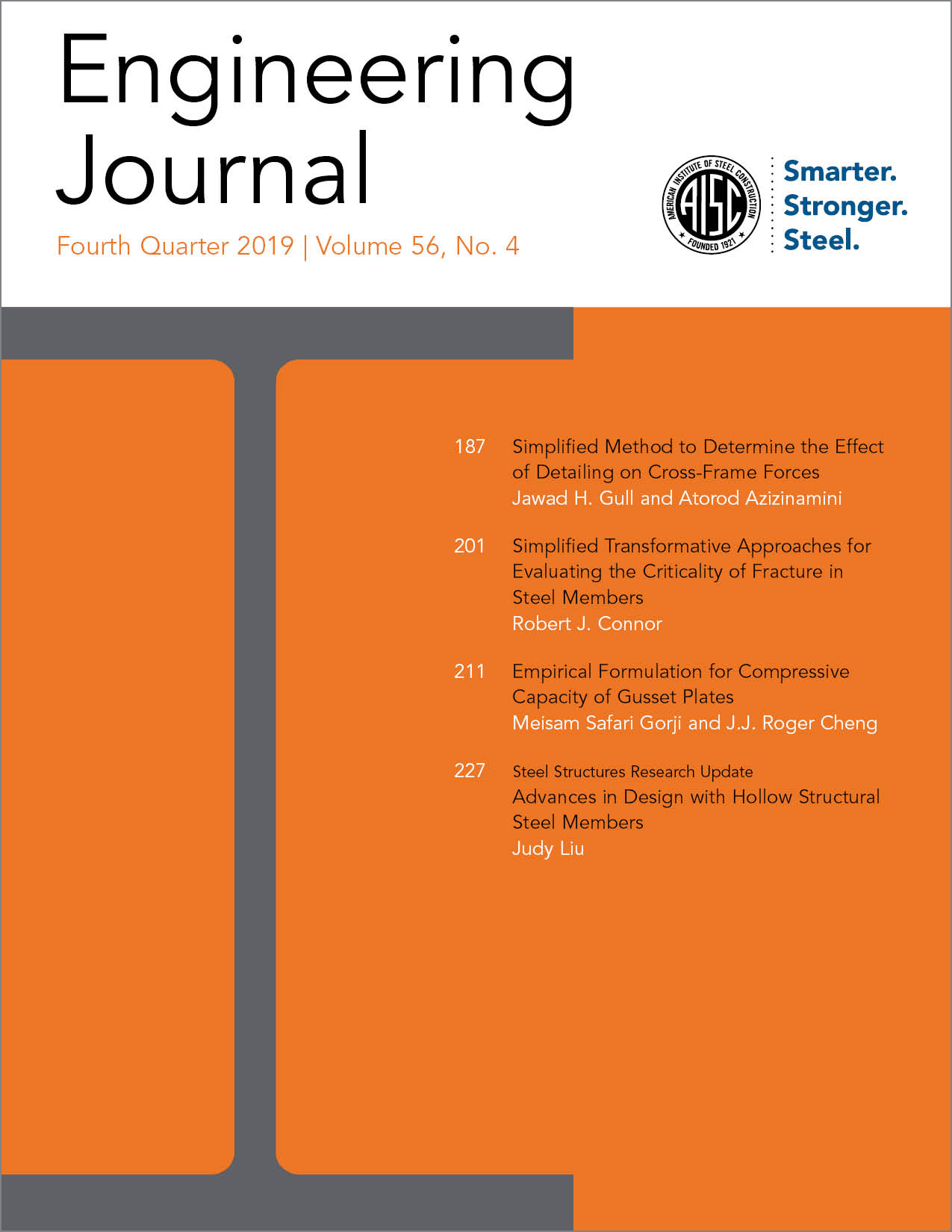Empirical Formulation for Compressive Capacity of Gusset Plates
DOI:
https://doi.org/10.62913/engj.v56i4.1154Keywords:
gusset plate, compressive strength, bucklingAbstract
Gusset plates play a critical role in the behavior and stability of bracing systems and truss bridges. While the behavioral characteristics of gusset plates have been widely investigated and analysis procedures have been developed, considerable uncertainty exists in the design equations, due primarily to the complexity of stress distribution in the connection area. Current design procedures rely heavily on highly simplified approaches, which typically result in an inconsistent design factor of safety for various gusset configurations and boundary conditions. In this research, a powerful genetic programming (GP) tool is employed to develop an empirical formulation for compressive capacity of corner gusset plates using a comprehensive database collected from previously published test results and test-validated finite element models. The predictive model correlates the ultimate compressive strength of gusset plates with their mechanical and geometrical properties. A comparative study is performed to evaluate the performance of the derived expression compared to the results of the well-known effective length factor method. The results indicate that the GP-based equation accurately estimates the compressive capacity of gusset plates and its prediction performance is significantly better than that of the current procedures.

